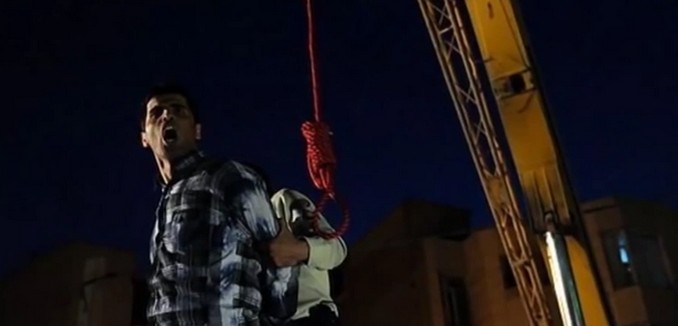Former Canadian Minister of Justice and long time human rights advocate Irwin Cotler outlined on Thursday the numerous ways that the government of Iranian President Hassan Rouhani “has presided over a regime that continues to engage in massive repression.”
Cotler evaluates six categories of human rights violations that have persisted or worsened during Rouhani’s presidency. In addition to highlighting a surge of executions, the use of torture, continued inequality for women and assaults on the press and other freedoms, Cotler wrote about the plight of Iran’s political prisoners.
Iran continues to imprison human rights defenders, students, journalists, bloggers, artists, trade unionists, members of the political opposition, and civil society leaders generally. While Rouhani has freed some high profile political prisoners at opportune moments – such as in the run up to his September 2013 visit to the U.S. – the cosmetic freeing of individual prisoners does not constitute systemic change in this regard. Indeed, the continued imprisonment of Jason Rezaian – the 38 year old American-Iranian Washington Post correspondent in Tehran – along with his wife – is yet another instance of the regime’s systematic repression of free speech and free press, while the hosue arrest of 2009 Presidential candidates Mir Hossein Mousavi and Medi Karoubi, together with Moussavi’s wife, Zahra Rahnaverd, is entering its fourth year.
Cotler contends that even the release of political prisoners is a charade, as they “remain surveilled, harassed, and intimidated and may be ultimately rearrested once international concern with their individual cases wanes.”
Cotler further charges the Iranian regime of operating under a “culture of impunity”, noting:
This summer marked 26 years since the Iranian regime’s 1988 Prison Massacre. For five months beginning in July 1988, the regime of then-Supreme Leader Ayatollah Ruhollah Khomeini executed thousands of Iranian dissidents, thereby purging any opposition to the absolute authority of the ruling clerics. These executions were carried out by fatwah – a religious decree – with the victims denied any semblance of due process as their guilt was proclaimed. Twenty-six years later, the Iranian regime not only continues to suppress evidence of the massacre – while rebuking family requests seeking information surrounding the execution and burial of the victims – but continues to provide political and financial rewards to the perpetrators.
Despite talk of moderation, Rouhani continues to indulge a culture of impunity, rewarding and promoting the perpetrators of grave abuses. His own Justice Minister, Mostafa Pour-Mohammadi, played a leading role in the 1988 Prison Massacre, presiding over the Evin Prison Death Committee that was responsible for selecting victims, is a scandalous example of the prevailing culture of impunity. Moreover, after political prisoners at Evin Prison’s notorious Ward 350 were brutally beaten in April, the responsible prison official – Gholamhossein Esmaili – was promoted to head the Tehran Justice Department. So long as human rights abusers continue to be rewarded with political advancement, Rouhani’s rhetoric of “moderation” will remain empty and irrelevant.
Cotler urges that any progress that might be made during the nuclear talks “should neither overshadow nor sanitize the regime’s ongoing abuses.”
[Photo: Darrin Fitzgerald / YouTube ]




